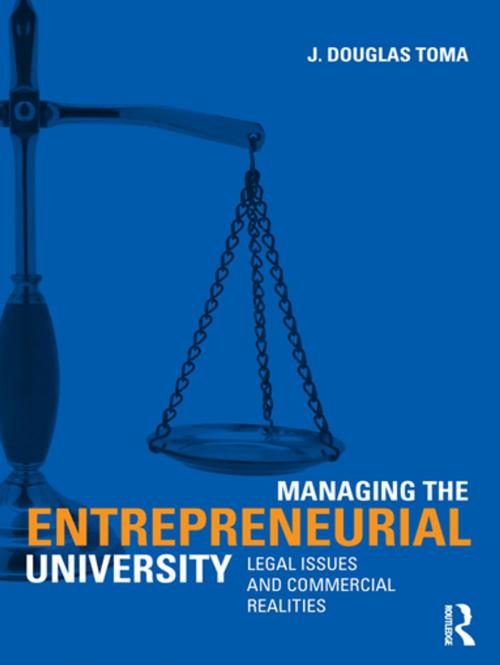Managing the Entrepreneurial University
Legal Issues and Commercial Realities
Nonfiction, Reference & Language, Education & Teaching, Higher Education, Administration| Author: | J. Douglas Toma | ISBN: | 9781136827891 |
| Publisher: | Taylor and Francis | Publication: | June 6, 2011 |
| Imprint: | Routledge | Language: | English |
| Author: | J. Douglas Toma |
| ISBN: | 9781136827891 |
| Publisher: | Taylor and Francis |
| Publication: | June 6, 2011 |
| Imprint: | Routledge |
| Language: | English |
Managing the Entrepreneurial University is essential reading for both higher education administrators and those studying to enter the field. As universities have become more market focused, they have changed dramatically. But has the law kept up? This book explains fundamental legal concepts in clear, non-technical language and grounds them in practical management situations, indicating where doctrines and standards have evolved, identifying where legal difficulties may be more likely to arise, and suggesting where change may be merited.
In its chapters on process, discrimination, employment, students, and regulation, the book:
- Provides lively case studies applicable to every type of institution
- Includes a simulation exercise at the end of each chapter for use in teaching or training
- Draws on an over 550-source bibliography
A hypothetical case spans each chapter, addressing not only research universities and elite liberal arts colleges, but also community colleges, small private colleges, and regional comprehensive universities. Readers working across functional areas and at various institution types will find the book directly relevant in clarifying and deepening their understanding of the legal environment associated with their responsibilities within the entrepreneurial university.
Managing the Entrepreneurial University is essential reading for both higher education administrators and those studying to enter the field. As universities have become more market focused, they have changed dramatically. But has the law kept up? This book explains fundamental legal concepts in clear, non-technical language and grounds them in practical management situations, indicating where doctrines and standards have evolved, identifying where legal difficulties may be more likely to arise, and suggesting where change may be merited.
In its chapters on process, discrimination, employment, students, and regulation, the book:
- Provides lively case studies applicable to every type of institution
- Includes a simulation exercise at the end of each chapter for use in teaching or training
- Draws on an over 550-source bibliography
A hypothetical case spans each chapter, addressing not only research universities and elite liberal arts colleges, but also community colleges, small private colleges, and regional comprehensive universities. Readers working across functional areas and at various institution types will find the book directly relevant in clarifying and deepening their understanding of the legal environment associated with their responsibilities within the entrepreneurial university.















